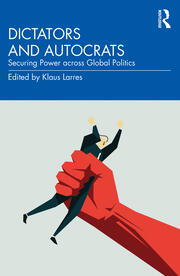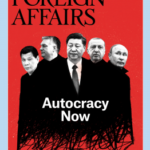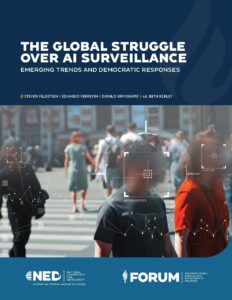China’s ruling Communist Party has developed a new artificial intelligence tool that allows authorities to monitor party members’ loyalty to the regime, reports suggest.
China’s Hefei Comprehensive National Science Center announced the development of an AI program “empowering party-building” that employs emotionally intelligent computing, among other methods, to measure subjects’ fealty and commitment to the CCP, adding that 43 party members were monitored as part of the study, according to Analytics Insight.
 World politics has reached an ominous phase of polarization, notes analyst Amin Saikal. The struggle between the US-led democracies and the Russo-Chinese-led autocracies primarily underpins this development. Yet there’s also another dangerous dimension to it: the emergence of close relations between the autocratic powers and such extremist theocratic forces as the Taliban in Afghanistan, he writes for the Australian Strategic Policy Institute.
World politics has reached an ominous phase of polarization, notes analyst Amin Saikal. The struggle between the US-led democracies and the Russo-Chinese-led autocracies primarily underpins this development. Yet there’s also another dangerous dimension to it: the emergence of close relations between the autocratic powers and such extremist theocratic forces as the Taliban in Afghanistan, he writes for the Australian Strategic Policy Institute.
Western acknowledgement of the reality of China’s military presence in Cambodia highlights the ease with which such facilities can be established in the absence of strong, democratically accountable institutions, adds Sam Rainsy.
Democracies are wary of an authoritarian regime like China diluting democratic norms and the rule of law, experts told a recent conference on Beijing’s global influence at William & Mary’s Global Research Institute
 If the U.S. wants its democratic ideals to survive amid shifting power dynamics, it must take a definitive stance against autocracies as it once did, said Lithuanian Representative Zygimantas Pavilionis (right).
If the U.S. wants its democratic ideals to survive amid shifting power dynamics, it must take a definitive stance against autocracies as it once did, said Lithuanian Representative Zygimantas Pavilionis (right).
“Thirty-two years ago, we voted against the Soviet Union and for our independence, and we started the rebuilding of our nation,” Pavilionis said. “That wouldn’t be happening without American support. … When America is standing for democracy, everything goes right.”
But inconsistent U.S. action followed the dissolution of the Soviet Union, Pavilionis added. “If you start appeasing autocracies, like Russia and China, they grow big,” he said.
 The U.S. exhibited complacency and self-satisfaction after the Cold War, said Ambassador Derek Mitchell, president of the National Democratic Institute, a core institute of the National Endowment for Democracy (NED).
The U.S. exhibited complacency and self-satisfaction after the Cold War, said Ambassador Derek Mitchell, president of the National Democratic Institute, a core institute of the National Endowment for Democracy (NED).
“The Russians didn’t think the Cold War ended, and Putin … thinks it’s still continuing. China looks at the Cold War and learns lessons and decides ‘We have to avoid what America did to the Soviet Union,'” he said. ” [The U.S.] tends to have this sort of complacency that wars end, and we have a dividend from them ending instead of continuing to fight and to think about what’s over the horizon and what we face.”
U.S. inconsistency gives competitors a chance to exert influence, Mitchell added. “If you aren’t out there shaping a world or environment that works for our values and interests and norms, others will come in and see that opportunity and take advantage of it.”
 China is implementing a multifaceted pressure campaign against Taiwan aimed at undermining the confidence of the people of Taiwan in their democratically elected government and weakening their will to resist integration with China, notes the Alliance for Securing Democracy (above). Beijing’s toolkit includes military and economic coercion, cyber operations, and disinformation campaigns, says ASD’s Laura Thornton.
China is implementing a multifaceted pressure campaign against Taiwan aimed at undermining the confidence of the people of Taiwan in their democratically elected government and weakening their will to resist integration with China, notes the Alliance for Securing Democracy (above). Beijing’s toolkit includes military and economic coercion, cyber operations, and disinformation campaigns, says ASD’s Laura Thornton.
Join #NDI, #IRI and #IREX for a happy hour and a chat with Beth Kerley of the National Endowment for Democracy on the International Forum for Democratic Studies’ new report The Global Struggle Over AI Surveillance: Emerging Trends and Democratic Responses, which features cross-regional perspectives from Steven Feldstein, Eduardo Ferreyra, and Danilo Krivokapic. Wed Jul 13 2022 at 05:30 pm to 07:30 pm. The Admiral, Washington, DC. RSVP







